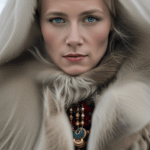
Iceland, a Nordic island nation, is known for its dramatic landscapes with volcanoes, geysers, hot springs, and lava fields. It is located in the North Atlantic Ocean and is the most sparsely populated country in Europe. The capital and largest city is Reykjavik, which is home to the majority of the country’s population.
Iceland is characterized by its rugged landscape filled with mountains, glaciers, and geothermal activity. The country is located on the Mid-Atlantic Ridge, where the North American and Eurasian tectonic plates meet, leading to a high level of volcanic activity. Iceland’s highest peak is Hvannadalshnúkur, and the largest glacier is Vatnajökull.
Despite its location just south of the Arctic Circle, Iceland’s climate is milder than one might expect due to the Gulf Stream. The average summer temperature in Reykjavik is around 10-13°C, while winter temperatures hover around 0°C. However, the weather can be unpredictable, with sudden changes in temperature, wind, and precipitation.
Iceland was settled by Norsemen from Scandinavia and Celts from the British Isles in the 9th and 10th century. In 930, the settlers established a form of governance, the Althing, which is considered one of the world’s oldest parliaments. The country became independent from Denmark in 1944.
Iceland’s economy is small and subject to high volatility. In 2008, the country experienced a major economic downturn, but it has since recovered. Key sectors include fishing, renewable energy, tourism, and manufacturing. Iceland is one of the wealthiest and most developed nations in the world.
Icelandic culture is founded upon the nation’s Norse heritage and its folk traditions are still very much alive. The country is famous for its literary heritage, which includes the sagas, narratives about the country’s early history. Iceland also has a vibrant music scene, with internationally known artists like Björk, Sigur Rós, and Of Monsters and Men.
Education in Iceland is mandatory for children aged 6–16. The school system is divided into four levels: playschool, compulsory, upper secondary and higher, and is both public and private. Iceland has a high literacy rate with a strong emphasis on a broad curriculum.
| Cookie | Duration | Description |
|---|---|---|
| cookielawinfo-checkbox-analytics | 11 months | This cookie is set by GDPR Cookie Consent plugin. The cookie is used to store the user consent for the cookies in the category "Analytics". |
| cookielawinfo-checkbox-functional | 11 months | The cookie is set by GDPR cookie consent to record the user consent for the cookies in the category "Functional". |
| cookielawinfo-checkbox-necessary | 11 months | This cookie is set by GDPR Cookie Consent plugin. The cookies is used to store the user consent for the cookies in the category "Necessary". |
| cookielawinfo-checkbox-others | 11 months | This cookie is set by GDPR Cookie Consent plugin. The cookie is used to store the user consent for the cookies in the category "Other. |
| cookielawinfo-checkbox-performance | 11 months | This cookie is set by GDPR Cookie Consent plugin. The cookie is used to store the user consent for the cookies in the category "Performance". |
| viewed_cookie_policy | 11 months | The cookie is set by the GDPR Cookie Consent plugin and is used to store whether or not user has consented to the use of cookies. It does not store any personal data. |